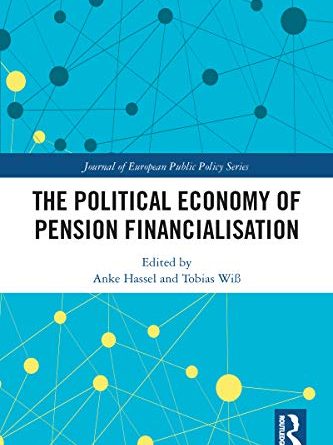The Political Economy of Pension Financialisation
By Anke Hassel, Tobias Wiß
The Political Economy of Pension Financialisation addresses – for numerous countries – how and why pension reforms have come to rely more on financial markets, how public policy reacted to financial crises, and regulatory variation.
The book demonstrates how the process of pension financialisation reveals that pension policy is not only a social policy that affects retirement income, but also a financial policy that impacts savings rates, corporate finance and the economy. The chapters shed light on pre-funded private pensions as one key component of financialisation, as they turn savings into investments via financial services providers. Readers will also see how pension financialisation and the broader financialisation of the economy are here to stay, despite negative developments during and after the financial crisis.
A systematic and comparative overwiew of the financialisation of pensions, The Political Economy of Pension Financialisation is ideal for scholars and postgradues working on Political Economy, Public Policy and Finance. This book was originally published as a special issue of the Journal of European Public Policy.
Get the book here











